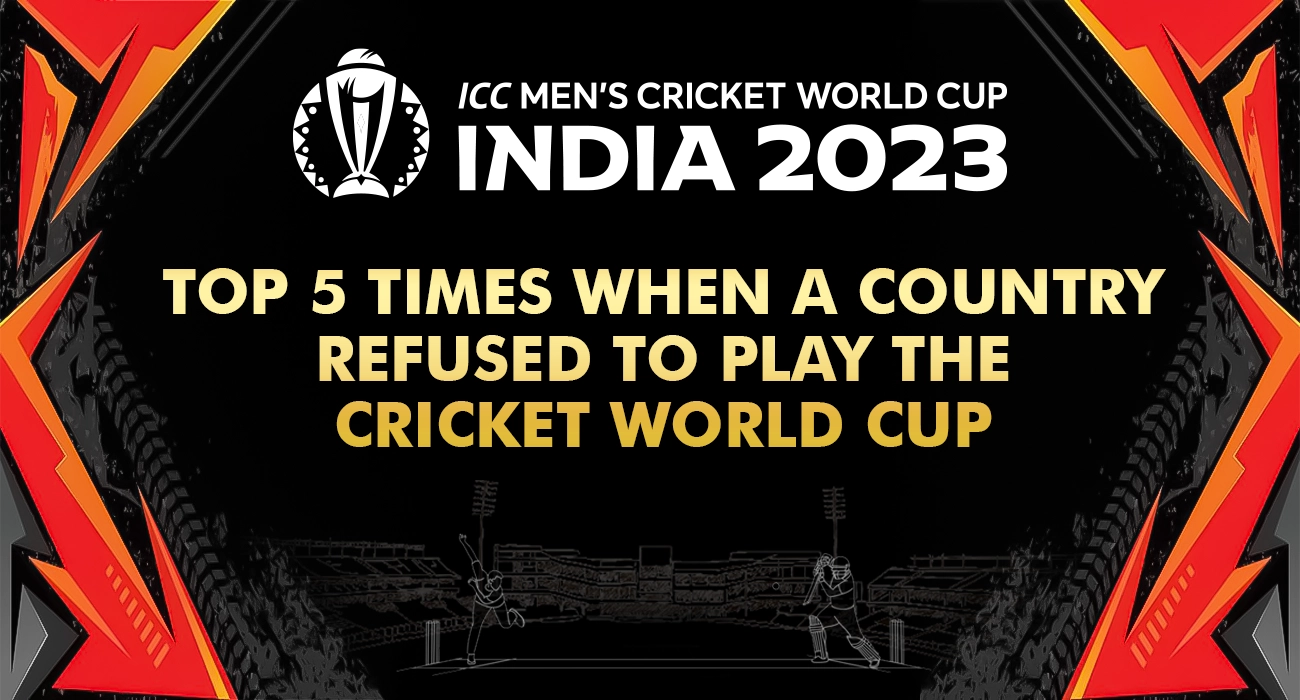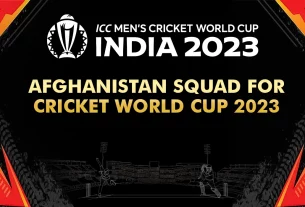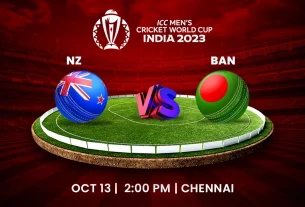Top 5 Times When a Country Refused to Play the Cricket World Cup
Cricket, known as the “gentleman’s game,” has a lengthy history and a sizable international fan base. A nation has opted out of the Cricket World Cup, the peak of international cricket, five times in meaningful ways. These rejections, which were motivated by issues like apartheid, political unrest, security worries, and technological disagreements, serve as fascinating chapters in the history of the competition. They emphasize how, in addition to connecting nations, cricket can also serve as a window into the complex interactions between sports and the sociopolitical environment worldwide.
Apartheid Boycott in South Africa (1975–1991):
South Africa’s boycott of the Cricket World Cup because of its apartheid regime was among the most notable and persistent abstentions. South Africa was excluded from international sports due to the racial segregationist system known as apartheid. The country was disqualified from the first three World Cups held in 1975, 1979, and 1983. South Africa triumphantly returned to international cricket in 1991 when apartheid restrictions were relaxed.
Safety Concerns in Sri Lanka (1996):
Australia and the West Indies had security concerns. They declined to play their group-stage matches in Sri Lanka during the 1996 Cricket World Cup, jointly hosted by Pakistan, Sri Lanka, and India. Due to the forfeiture of these games, Sri Lanka had a free trip to the knockout round, where they ultimately won. While the safety of the players was a legitimate worry, this occurrence highlighted the exceptional conditions that resulted in a team’s withdrawal from significant competition. It was a rare instance of security-related non-participation in international cricket.
2003’s Zimbabwe’s Political Unrest (2003):
Zimbabwe’s decision to boycott the 2003 Cricket World Cup resulted from political unrest. International condemnation and sanctions were imposed on the Robert Mugabe-led Zimbabwean government as a result of violations of human rights. Because of safety concerns, England and New Zealand forfeited their games against Zimbabwe, worsening the situation. Zimbabwe was consequently excluded from the competition before participating in a single game, emphasizing the connection between sports and politics.
DRS Protest in India (2012):
India’s refusal to use the Decision Review System (DRS) during their matches during the 2012 ICC T20 World Cup was a notable example of opposition to the technology. India has long been reluctant to use the DRS, and this resistance caused controversy throughout the competition. India’s stance against DRS was a vast and effective protest in international cricket, even though it wasn’t a complete refusal to play.
Afghanistan’s Political Unrest (2022):
Afghanistan’s cricket team experienced difficulties in 2022 due to the Taliban’s takeover. Afghanistan withdrew from the T20 World Cup in Australia due to deteriorating political circumstances and security worries. This demonstrated how outside influences might prevent a country from participating in international sporting events.
The history of the Cricket World Cup includes instances when nations choose not to compete for various reasons, in addition to notable defeats and magnificent moments. These occurrences, which range from boycotts against apartheid to political unrest and security worries, demonstrate the intricate interactions between sports and the larger socio-political environment. Cricket still unites people from all over the world, but it also reflects the challenges and conflicts other countries experience on the international stage. These occurrences serve as a reminder that, like any sport, cricket may be deeply linked with current international events as a mirror to society’s more serious issues and concerns.
Cricket fans worldwide eagerly anticipate each Cricket World Cup, not just for the thrilling matches but also for the dramatic off-the-field antics. Even if they are less frequent, these instances of not participating significantly impact the history of the competition and the constantly changing international cricket scene.
Also Read: What is the Prize Money for the Cricket World Cup 2023 (khelraja.live)






